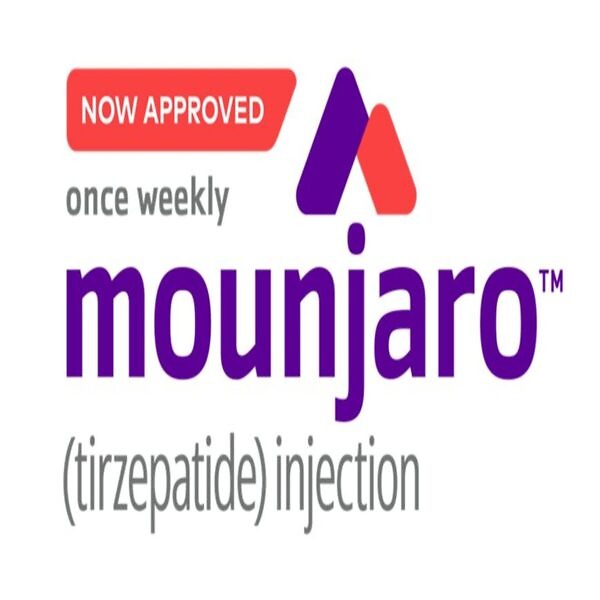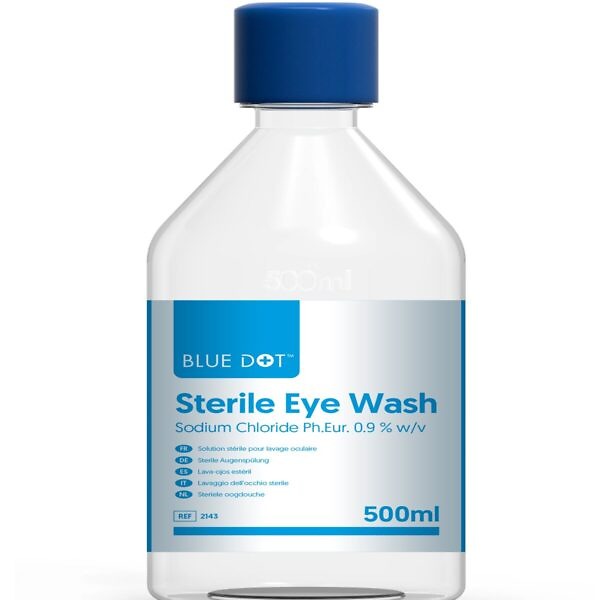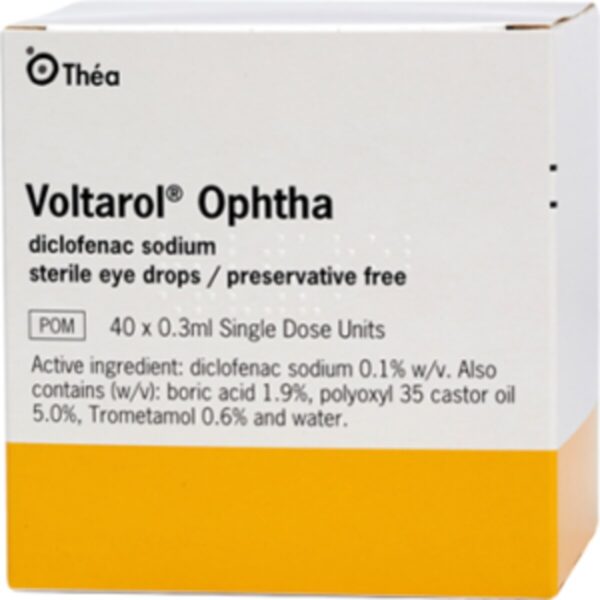Depo-Medrone Vial – Methylprednisolone Acetate Injection
Depo-Medrone Vial – Methylprednisolone Acetate Injection available in 3 strengths:
- Depo-Medrone 40mg/1ml Vial – Methylprednisolone Acetate 40mg/1ml Injection
- Depo-Medrone 80mg/2ml Vial – Methylprednisolone Acetate 80mg/2ml Injection
- Depo-Medrone 120mg/3ml Vial – Methylprednisolone Acetate 120mg/3ml Injection
£5.95 – £135.50
CompareCompare- Depo-Medrone 40mg/1ml Vial - Methylprednisolone Acetate 40mg/1ml Injection
- Depo-Medrone 80mg/2ml Vial - Methylprednisolone Acetate 80mg/2ml Injection
- Depo-Medrone 120mg/3ml Vial - Methylprednisolone Acetate 120mg/3ml Injection
- Description
- Additional Information
- Brand
- How To Use
- Product Details
- Side Effects
- Ingredients
- How to Store
- Patient Information leaflet
- Reviews (0)
- Questions & Answers
Depo-Medrone Vial – Methylprednisolone Acetate Injection
Introducing Depo-Medrone Vial – Methylprednisolone Acetate Injection, a powerful corticosteroid treatment designed to alleviate local symptoms of inflammatory or rheumatic conditions. As part of the corticosteroid family, methylprednisolone acetate mimics the body’s natural anti-inflammatory processes, offering relief when natural levels are not enough. Administered by healthcare professionals, Depo-Medrone is versatile, being effective when injected into joints, muscles, or directly into the site of inflammation. Available in convenient packs containing 1 or 10 vials, with dosage options of 1 ml, 2 ml, or 3 ml of suspension, Depo Medrone is ready to meet various treatment needs, ensuring precise and targeted therapy for patients suffering from a range of conditions, including joint diseases, skin disorders, and systemic issues.
Depo-Medrone Injection Benefits:
- Targeted Relief: Specifically designed for injection by healthcare professionals, Depo-Medrone offers localized treatment directly at the site of inflammation, providing fast and effective relief from pain and swelling.
- Versatile Application: Suitable for a broad spectrum of conditions, including bursitis, osteoarthritis, rheumatoid arthritis, plantar fasciitis, skin issues like alopecia areata and keloids, as well as systemic problems like Crohn’s disease and asthma.
- Mimics Natural Processes: Methylprednisolone acetate is a corticosteroid that works by enhancing the body’s natural anti-inflammatory mechanisms, making it a natural fit for your body’s chemistry.
- Flexible Dosage Options: With 1 ml, 2 ml, and 3 ml vials available in packs of 1 or 10, Depo-Medrone caters to varying therapeutic needs, ensuring that patients receive the appropriate dosage for their condition.
- Reduced Systemic Effects: By targeting the specific area of inflammation or pain, Depo-Medrone minimizes the risk of systemic side effects, making it a safer option for patients requiring localized treatment.
- Comprehensive Treatment: Not only effective for joint and skin conditions, Depo-Medrone is also utilized in treating systemic issues and allergic reactions, showcasing its wide range of therapeutic uses.
- Animal use: Depo-Medrone injection can be used in veterinary practice to treat horses, dogs and cats for inflammatory and allergic conditions.
Depo-Medrone Vial – Methylprednisolone Acetate Injection represents a significant advancement in the management of inflammation and rheumatic diseases. Its precision, versatility, and alignment with the body’s natural processes make it an essential tool in the therapeutic arsenal for healthcare professionals.
Depo-Medrone Vial Reviews
After using Amoxicillin Injection, it’s helpful to let others know about your experience. Reviews of an item help other users know that medicines received have helped the condition it is claimed for, how well the treatment worked or any issues to be aware of. We invite our users to leave a review of both their treatment and of the service provided. Click on the reviews tab to see if there has been feedback on this item.
What is the price of Depo-Medrone Vial?
The price of Depo-Medrone Vial starts from £5.95
Where can you buy Depo-Medrone Vial?
You can buy Depo-Medrone Vial at Dock Pharmacy Essex UK, UK Online Pharmacy.
Can you buy Depo-Medrone Vial Over the counter?
Depo-Medrone Vial is not available to buy over the counter. You need a prescription to buy Depo-Medrone Vial from Dock pharmacy. You can find more information about how to obtain the medication here:
Disclaimer: This product description is provided for informational purposes only. It is not a substitute for professional medical advice, diagnosis, or treatment. Always seek the advice of your physician or other qualified health provider with any questions you may have regarding a medical condition
Dock Pharmacy
128 Dock Road, Tilbury, Essex, RM18 7BJ
Tel: 01375846316
| Brand | |
|---|---|
| Pack Size | 1 Vial, 10 Vials |
| Strength | Depo Medrone 40mg/1ml, Depo Medrone 80mg/2ml, Depo Medrone 120mg/3ml |
Brand
DEPO-MEDRONE
How To Use
How Depo-Medrone is given to you
Steroid Cards
Remember to always carry a Steroid Treatment Card. Make sure your doctor or pharmacist has filled out the details of your medicine, including the dose and how long you will require steroid treatment.
You should show your steroid card to anyone who gives you treatment (such as a doctor, nurse or dentist) while you are taking this medicine, and for 3 months after your last injection.
If you are admitted to hospital for any reason always tell your doctor or nurse that you are taking this medicine. You can also wear a medic-alert bracelet or pendant to let medical staff know that you are taking a steroid if you have an accident or become unconscious.
Dosage information
Your doctor will decide on the site of injection, how much of the medicine and how many injections you will receive depending on the condition being treated and its severity. Your doctor will inject you with the lowest dose for the shortest possible time to get effective relief of your symptoms
Your doctor/nurse will tell you how many injections you will require for the condition you are being treated for, and when you will get them.
Product Details
What you need to know before you are given Depo-Medrone
Do not use Depo-Medrone if: • You think you have ever suffered an allergic reaction, or any other type of reaction after being given Depo-Medrone, or any other medicine containing a corticosteroid or any of the ingredients in this medicine (listed in section 6).An allergic reaction may cause a skin rash or reddening, swollen face or lips or shortness of breath. • You get a rash, or another symptom of an infection. • You have recently had, or are about to have any vaccination. See your doctor immediately if any of the above applies to you. Do not inject this medicine: • into the Achilles tendon (which is located behind the ankle joint), or • directly into a vein (intravenous), the spinal cord (intrathecal), the outer covering of the brain (extradural), into the nostrils (intranasal) or in the eye (intraocular). Warnings and precautions Talk to your doctor or nurse before taking Depo-Medrone if you have any of the following conditions. Your doctor may also have to monitor your treatment more closely, alter your dose or give you another medicine. • Acute adrenal insufficiency (when your body cannot produce enough corticosteroid due to problems with your adrenal glands). • Acute pancreatitis (inflammation of the pancreas). • Chickenpox, measles, shingles or a herpes eye infection. If you think you have been in contact with someone with chickenpox, measles or shingles and you have not already had these illnesses, or if you are unsure if you have had them. • Severe depression or manic depression (bipolar disorder). This includes having had depression before while taking steroid medicines like Depo-Medrone, or having a family history of these illnesses. • Cushing’s disease (condition caused by an excess of cortisol hormone in your body). • Diabetes (or if there is a family history of diabetes). • Epilepsy, fits or seizures. • Glaucoma (increased pressure in the eye) or if there is a family history of glaucoma. • Contact your doctor if you experience blurred vision or other visual disturbances. • You have recently suffered a heart attack. • Heart problems, including heart failure or infections. • Hypertension (high blood pressure). • Hypotension (low blood pressure). • Hypothyroidism (an under-active thyroid). Page 3 of 13 • Joint infection. • Kidney or liver disease. • Muscle problems (pain or weakness) have happened while taking steroid medicines in the past. • Myasthenia gravis (a condition causing tired and weak muscles). • Osteoporosis (brittle bones). • Pancreatitis(Inflammation of the pancreas which causes severe pain in the abdomen and back). • Peritonitis (Inflammation of the thin lining (peritoneum) around the gut and stomach). • Pheochromocytoma (a rare tumour of adrenal gland tissue. The adrenal glands are located above the kidneys). • Scleroderma (also known as systemic sclerosis, an autoimmune disorder), because the risk of a serious complication called scleroderma renal crisis may be increased. Signs of scleroderma renal crisis include raised blood pressure and decreased urine production. • Skin abscess. • Stomach ulcer or other serious stomach or intestinal problems. • Unusual stress. • Thrombophlebitis – vein problems due to thrombosis (clots in the veins) resulting in phlebitis (red, swollen and tender veins). • Tuberculosis (TB) or if you have suffered tuberculosis in the past. • Traumatic brain injury. Tumour lysis syndrome can occur after treatment of a fast-growing cancer, especially certain leukemias and lymphomas (cancers of the blood) or solid tumours. As the tumour cells die, they break apart and release their contents into the blood. This causes a change in certain chemicals in the blood, which may cause damage to organs, including the kidneys, heart and liver that may lead to muscle cramping, muscle weakness, confusion, irregular heartbeat, visual loss or visual disturbances, and shortness of breath. Your doctor will monitor you closely, especially if you are at high risk of developing tumour lysis syndrome. You must tell your doctor before you take this medicine if you have any of the conditions listed above. Other medicines and Depo-Medrone Tell your doctor or pharmacist if you are taking, have recently taken or might take any other medicines. You should tell your doctor if you are taking any of the following medicines which can affect the way Depo-Medrone or the other medicine works: • Acetazolamide – used to treat glaucoma and epilepsy. • Aminoglutethimide and cyclophosphamide – used for treating cancer. • Antibacterials (such as isoniazid, erythromycin, clarithromycin and troleandomycin). • Anticoagulants – used to ‘thin’ the blood such as acenocoumarol, phenindione and warfarin. • Anticholinesterases – used to treat myasthenia gravis (a muscle condition) such as distigmine and neostigmine. • Antidiabetics – medicines used to treat high blood sugar. • Antiemetics (such as aprepitant and fosaprepitant). Page 4 of 13 • Antivirals (such as ritonavir, indinavir) and pharmacokinetic enhancers (such as cobicistat) used to treat HIV infections. • Aspirin and non-steroidal anti-inflammatory medicines (also called NSAIDs) such as ibuprofen used to treat mild to moderate pain. • Barbiturates, carbamazepine, phenytoin and primidone – used to treat epilepsy. • Carbenoxolone – used for heartburn and acid indigestion. • Ciclosporin – used to treat conditions such as severe rheumatoid arthritis, severe psoriasis or following an organ or bone marrow transplant. • Digoxin – used for heart failure and/or an irregular heart beat. • Diltiazem – used for heart problems or high blood pressure. • Ethinylestradiol and norethindrone – oral contraceptives. • Ketoconazole or itraconazole – used to treat fungal infections. • Pancuronium and vecuronium – or other medicines called neuromuscular blocking agents which are used in some surgical procedures. • Potassium depleting agents – such as diuretics (sometimes called water tablets), amphotericin B, xanthenes or beta2 agonists (e.g. medicines used to treat asthma). • Rifampicin and rifabutin – antibiotics used to treat tuberculosis (TB). • Tacrolimus – used following an organ transplant to prevent rejection of the organ. • Vaccines – tell your doctor or nurse if you have recently had, or are about to have any vaccination. You must not have ‘live’ vaccines while using this medicine. Other vaccines may be less effective. If you are taking long term medication(s) If you are being treated for diabetes, high blood pressure or water retention (oedema) tell your doctor as he/she may need to adjust the dose of the medicines used to treat these conditions. Before you have any operation tell your doctor, dentist or anaesthetist that you are taking this medicine. If you require a test to be carried out by your doctor or in hospital it is important that you tell the doctor or nurse that you are taking Depo-Medrone. This medicine can affect the results of some tests. Depo-Medrone with drink Do not drink grapefruit juice while taking this medicine. Pregnancy and breast-feeding If you are pregnant, think you may be pregnant or are planning to have a baby, ask your doctor or pharmacist for advice before taking this medicine, as this medicine could slow the baby’s growth. There is a risk associated with low birth weight of the baby; this risk can be reduced by administering a lower dose of the medicine. Cataracts have been observed in infants born to mothers treated with long-term corticosteroids during pregnancy. If you are breast-feeding, ask your doctor or pharmacist for advice before taking this medicine, as small amounts of corticosteroid medicines may get into breast milk. If you continue breast-feeding while you are having treatment, your baby will need extra checks to make sure he or she is not being affected by your medicine. Driving and using machines Undesirable effects, such as dizziness, vertigo, visual disturbances and fatigue are possible after treatment with corticosteroids. If you are affected do not drive or operate machinery. Page 5 of 13 Depo-Medrone contains sodium This medicinal product contains less than 1 mmol sodium (23 mg) per vial, that is to say essentially ‘sodium-free’
Side Effects
Possible side effects
Like all medicines, this medicine can cause side effects, although not everybody gets them. Your doctor will have given you this medicine for a condition which if not treated properly could become serious. In certain medical conditions medicines like Depo-Medrone (steroids) should not be stopped abruptly. If you suffer from any of the following symptoms seek IMMEDIATE medical attention. Your doctor will then decide whether you should continue taking your medicine. • Allergic reactions, such as skin rash, swelling of the face or wheezing and difficulty breathing or dizziness. This type of side effect is rare, but can be serious. • Pancreatitis, stomach pain spreading to your back, possibly accompanied by vomiting, shock and loss of consciousness. Page 7 of 13 • Ulcers or bleeding ulcers, symptoms of which are severe stomach pain which may go through to the back and could be associated with bleeding from the back passage, black or bloodstained stools and/or vomiting blood. • Infections, this medicine can hide or change the signs and symptoms of some infections, or reduce your resistance to the infection, so that they are hard to diagnose at an early stage. Symptoms might include a raised temperature and feeling unwell. Symptoms of a flare up of a previous TB infection could be coughing blood or pain in the chest. This medicine may also make you more likely to develop a severe infection. • Peritonitis, an inflammation (irritation) of the peritoneum, the thin tissue that lines the inner wall of the abdomen and covers most of the abdominal organs. Symptoms are, the stomach (abdomen) being very painful or tender, the pain may become worse when the stomach is touched or when you move. • Pulmonary embolus (blood clot in the lung) symptoms include sudden sharp chest pain, breathlessness and coughing up blood. • Raised pressure within the skull of children (pseudotumour cerebri) symptoms of which are headaches with vomiting, lack of energy and drowsiness. This side effect usually occurs after treatment is stopped. • Thrombophlebitis (blood clots or thrombosis in a leg vein), symptoms of which include painful swollen, red and tender veins. If you experience any of the following side effects, or notice any other unusual effects not mentioned in this leaflet, tell your doctor immediately. The side effects may occur with certain frequencies, which are defined as follows: • not known: frequency cannot be estimated from the available data Blood, heart and circulation not known • High blood pressure, symptoms of which are headaches, or generally feeling unwell. • Problems with the pumping of your heart (heart failure) symptoms of which are swollen ankles, difficulty in breathing and palpitations (awareness of heart beat) or irregular beating of the heart, irregular or very fast or slow pulse. • Low blood pressure, symptoms may include dizziness, fainting, lightheadedness, blurred vision, a rapid or irregular heartbeat (palpitations). • Increase of white blood cells (leukocytosis). • Increased clotting of the blood. • Warmth and reddening of the skin (Flushing). • Post injection pain flare (a temporary increase in pain at the injection site). Body water and salts not known • Swelling and high blood pressure, caused by increased levels of water and salt content. • Cramps and spasms, due to the loss of potassium from your body. In rare cases this can lead to congestive heart failure (when the heart cannot pump properly). Digestive system not known • Ulcers. • Nausea (feeling sick) or vomiting (being sick). • Thrush in the gullet (discomfort on swallowing). • Indigestion. Page 8 of 13 • Diarrhoea. • Bloated stomach. • Abdominal pain. • Persistent hiccups, especially when high doses are taken. Ears not known • A feeling of dizziness or spinning (vertigo). Eyes not known • Cataracts (indicated by failing eyesight). • Glaucoma (raised pressure within the eye, causing pain in the eyes and headaches). • Swollen optic nerve (causing a condition called papilloedema, and which may cause sight disturbance). • Increased intra-ocular pressure, with possible damage to the optic nerve (indicated by failing eyesight). • Thinning of the clear part at the front of the eye (cornea) or of the white part of the eye (sclera). • Worsening of viral or fungal eye infections. • Protruding of the eyeballs (exophthalmos). • Blurred or distorted vision (due to disease of the retina and choroid membrane). General disorders not known • Poor wound healing. • Irritability in children. • Feeling tired or unwell. • Skin reactions at the site of injection. • Irritability in adults. Hepatobiliary disorders not known • Methylprednisolone can damage your liver, hepatitis and increase of liver enzymes have been reported. Hormones and metabolic system not known • Slowing of normal growth in infants, children and adolescents which may be permanent. • Round or moon-shaped face (Cushingoid facies). • Diabetes or worsening of existing diabetes. • Irregular or no periods in women. • Increased appetite and weight gain. • Abnormal localized or tumour-like accumulations of fat in the tissues. • Prolonged therapy can lead to lower levels of some hormones which in turn can cause low blood pressure and dizziness. This effect may persist for months. • The amount of certain chemicals (enzymes) called alanine transaminase, aspartate transaminase and alkaline phosphatase that help the body digest drugs and other substances in your body may be raised after treatment with a corticosteroid. The change is usually small and the enzyme levels return to normal after your medicine has cleared naturally from your system. You will not notice any symptoms if this happens, but it will show up if you have a blood test. Page 9 of 13 Immune system not known • Increased susceptibility to infections which can hide or change normal reactions to skin tests, such as that for tuberculosis. Metabolism and nutrition disorders not known • Accumulation of fat tissue on localized parts of the body. • Back pain or weakness (due to Epidural Lipomatosis, a rare disorder in which an abnormal amount of fat is deposited on or outside the lining of the spine). Muscles, bones and joints not known • Muscle weakness. • Brittle bones (bones that break easily). • Muscle wasting. • Broken bones or fractures. • Breakdown of bone due to poor circulation of blood, this causes pain in the hip. • Joint pain. • Torn muscle tendons causing pain and/or swelling. • Muscle cramps or spasms. • Swollen or painful joints due to infection. Nerves and mood issues not known Steroids including methylprednisolone can cause serious mental health problems. These are common in both adults and children. They can affect about 5 in every 100 people taking medicines like methylprednisolone. • Feeling depressed, including thinking about suicide. • Feeling high (mania) or moods that go up and down. • Feeling anxious, having problems sleeping, difficulty in thinking or being confused and losing your memory. • Feeling, seeing or hearing things which do not exist. Having strange and frightening thoughts, changing how you act or having feelings of being alone. • Other nervous system side effects may include convulsions (seizures), amnesia (loss of memory), cognitive disorder (mental changes), dizziness and headache. Skin not known • Acne. • Bruising. • Abscess, especially near injection sites. • Thinning of skin, stretch marks. • Small purple/red patches on the skin. • Pale or darker patches on your skin, or raised patches which are an unusual color. • Increased hair on the body and face (hirsutism). • Rash, itching, hives. • Increased sweating. Reporting of side effects If you get any side effects, talk to your doctor or pharmacist. This includes any possible side effects not listed in this leaflet. You can also report side effects directly via the Yellow Card Page 10 of 13 Scheme at: www.mhra.gov.uk/yellowcard or search for MHRA Yellow Card in the Google Play or Apple App Store. By reporting side effects, you can help provide more information on the safety of this medicine
Ingredients
What Depo-Medrone contains
The active substance is methylprednisolone acetate.
Each millilitre contains 40 mg of methylprednisolone acetate.
The other ingredients are sodium chloride, polyethylene glycol, myristyl-gamma-picolinium chloride and water for injections.
Depo-Medrone is available in packs containing 1 or 10 vials, containing 1 ml, 2 ml or 3 ml of suspension.
How to Store
How to store Depo-Medrone
Keep this medicine out of the sight and reach of children. Do not use this medicine after the expiry date which is stated on the label and carton after EXP. The expiry date refers to the last day of that month. Do not freeze. Do not throw away any medicines via wastewater or household waste. Ask your pharmacist how to throw away medicines you no longer use. These measures will help to protect the environment.
Patient Information leaflet
Click here for the Patient Information leaflet
Please read before using the product
Only logged in customers who have purchased this product may leave a review.
Questions and answers of the customers
There are no questions yet, be the first to ask something for this product.
Other Products From This Seller
- Validated for 2-8°C for 30 to 36 hrs*
- Perfect for long-haul flights
- Carries pens, bottles, vials and syringes
- Manufactured from excellent quality materials
£102.50
- Availability: in stock
- Validated for 2-8°C for 18 to 24hrs*
- Perfect for long haul flights
- Carries pens, bottles, vials and syringes
- Integrated digital thermometer
- Manufactured from excellent quality materials
£69.45
- Availability: in stock
- Validated for 2-8°C for 15 to 20hrs*
- Perfect for long haul flights
- Carries pens, bottles, vials and syringes
- Integrated digital thermometer
- Manufactured from excellent quality materials
£54.50
- Availability: in stock
Steglatro Tablets – Ertugliflozin Tablets available in 2 strengths:
- Steglatro 5mg Tablets – Ertugliflozin 5mg Tablets
- Steglatro 15mg Tablets – Ertugliflozin 15mg Tablets
£49.50
- Availability: in stock
Original price was: £43.20.£39.50Current price is: £39.50.
Ursodeoxycholic Acid Tablets 250mg – Cholurso Tablets, 60 Tablets Introducing Cholurso Tablets the brand name of Ursodeoxycholic Acid Tablets 250mg – Your Solution for Gallstone Management and Liver Health Ursodeoxycholic Acid 250mg Tablets is a cutting-edge pharmaceutical formulation designed to positively influence bile composition, making it a versatile solution for various health concerns. Ursodeoxycholic Acid, […]
Learn MoreOriginal price was: £43.20.£39.50Current price is: £39.50.
- Availability: in stock
£156.00 – £210.00
Please note you need insulin pen needles to use Mounjaro Injection
Mounjaro Injection – Tirzepatide Injection, 4 Pre-filled Pens
Available in 6 strengths:
- Mounjaro 2.5mg Injection
- Mounjaro 5mg Injection
- Mounjaro 7.5mg Injection
- Mounjaro 10mg Injection
- Mounjaro 12.5mg Injection
- Mounjaro 15mg Injection
Learn More
£156.00 – £210.00
- Availability: in stock
Timoptol LA Gel – Timolol Eye Gel is available in 2 strengths
- Timoptol LA 0.5% Gel
- Timoptol LA 0.25% Gel
£7.50
- Availability: in stock
Original price was: £43.50.£39.75Current price is: £39.75.
One-Alpha Drops 2mcg/1ml – Alfacalcidol Drops 2mcg/1ml
Learn MoreOriginal price was: £43.50.£39.75Current price is: £39.75.
- Availability: in stock
Original price was: £5.99.£5.39Current price is: £5.39.
Ideal for irrigating and cleansing the eye, or a wound
Learn MoreOriginal price was: £5.99.£5.39Current price is: £5.39.
- Availability: in stock
Ultimate Surefit Erection Ring Set 15222 – Constrictor Rings For Erectile Dysfunction Experience Confidence and Pleasure with the Ultimate Surefit maintenance ring set – Your Key to Intimate Well-being Introducing the Ultimate Surefit Erection Ring, a premium solution meticulously designed for those seeking to overcome the challenges of erectile dysfunction. Crafted with precision and comfort […]
Learn More£58.50
- Availability: in stock


















Reviews
There are no reviews yet.